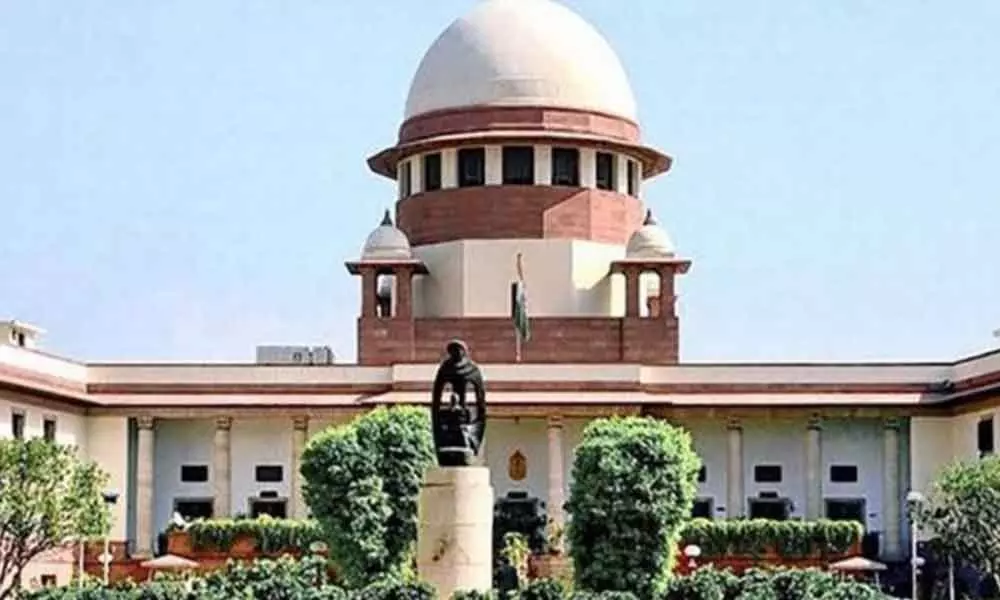Just In
New Delhi: Supreme Court to hear pleas against polygamy, nikah halala after winter break


The Supreme Court Monday said it will hear after the winter break the pleas challenging practices of polygamy and ''nikah halala'' among Muslims.
New Delhi (PTI): The Supreme Court Monday said it will hear after the winter break the pleas challenging practices of polygamy and ''nikah halala'' among Muslims.
The issue was mentioned before a bench comprising Chief Justice S A Bobde and Justices B R Gavai and Surya Kant which said the matter cannot be heard immediately and will be listed on reopening of the the apex court after winter break in January 2019.
The plea was mentioned by advocate and BJP politician Ashwini Upadhyay, who has sought a direction to declare polygamy and ''nikah halala'' among Muslims as unconstitutional and illegal.
The apex court in July 2018 had considered the plea and it referred the matter to a Constitution bench that has been already asked to hear a batch of similar petitions. The apex court had issued notice to the Centre on the petition filed by one Farjana and tagged Upadhyay''s plea along with a batch of petitions to be heard by the constitution bench.
"Petitioner is filing this petition under Article 32 of the Constitution seeking a writ, order or direction in the nature of mandamus to declare polygamy and nikah halala, practised in Muslim community, illegal and unconstitutional for being violative of Articles 14, 15, 21 and 25 of the Constitution," the plea said.
The petition by the lawyer further sought a declaration that extra-judicial talaq is a cruelty under Section 498A of the IPC, nikah halala is an offence under Section 375 of the IPC, and polygamy is an offence under Section 494 of the IPC, 1860.
The apex court, which on August 22, 2017, had banned the age-old practice of instant ''triple talaq'' among Sunni Muslims, had on March 26, 2018 decided to refer to a larger bench a batch of pleas challenging the constitutional validity of polygamy and ''nikah halala'' among Muslims.
While polygamy allows a Muslim man to have four wives, ''nikah halala'' is a process in which a Muslim woman, who wants to re-marry her husband after divorce, has to first marry another person and get a divorce from the second person after consummating the marriage.
The pleas were referred to a larger bench by the Supreme Court after an earlier five-judge constitution bench, in its 2017 verdict, had kept open the issue of polygamy and ''nikah halala'', while quashing the practice of ''triple talaq''.

© 2024 Hyderabad Media House Limited/The Hans India. All rights reserved. Powered by hocalwire.com






